Filter by
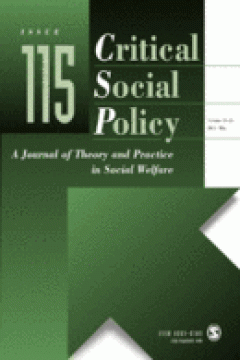
Critical Social Policy, Volume 38, Number 2, May 2018
- Edition
- -
- ISBN/ISSN
- 02610183
- Collation
- -
- Series Title
- -
- Call Number
- -
- Edition
- -
- ISBN/ISSN
- 02610183
- Collation
- -
- Series Title
- -
- Call Number
- -
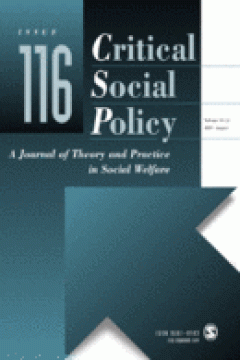
Critical Social Policy, Volume 38, Number 3, August 2018
- Edition
- -
- ISBN/ISSN
- 02610183
- Collation
- -
- Series Title
- -
- Call Number
- -
- Edition
- -
- ISBN/ISSN
- 02610183
- Collation
- -
- Series Title
- -
- Call Number
- -

Gender & Society, Volume 32, Number 5, October 2018
- Edition
- -
- ISBN/ISSN
- 08912432
- Collation
- -
- Series Title
- -
- Call Number
- -
- Edition
- -
- ISBN/ISSN
- 08912432
- Collation
- -
- Series Title
- -
- Call Number
- -

Gender & Society, Volume 32, Number 4, August 2018
- Edition
- -
- ISBN/ISSN
- 08912432
- Collation
- -
- Series Title
- -
- Call Number
- -
- Edition
- -
- ISBN/ISSN
- 08912432
- Collation
- -
- Series Title
- -
- Call Number
- -
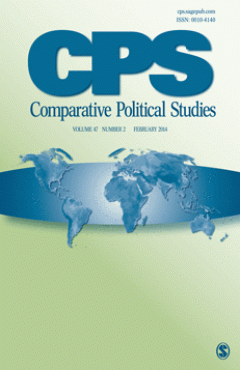
Comparative Political Studies, Volume 51, Number 10, September 2018
- Edition
- -
- ISBN/ISSN
- 00104140
- Collation
- -
- Series Title
- -
- Call Number
- -
- Edition
- -
- ISBN/ISSN
- 00104140
- Collation
- -
- Series Title
- -
- Call Number
- -

Comparative Political Studies, Volume 51, Number 7, June 2018
- Edition
- -
- ISBN/ISSN
- 00104140
- Collation
- -
- Series Title
- -
- Call Number
- -
- Edition
- -
- ISBN/ISSN
- 00104140
- Collation
- -
- Series Title
- -
- Call Number
- -

Comparative Political Studies, Volume 51, Number 9, August 2018
- Edition
- -
- ISBN/ISSN
- 00104140
- Collation
- -
- Series Title
- -
- Call Number
- -
- Edition
- -
- ISBN/ISSN
- 00104140
- Collation
- -
- Series Title
- -
- Call Number
- -

Comparative Political Studies, Volume 51, Number 11, September 2018
- Edition
- -
- ISBN/ISSN
- 00104140
- Collation
- -
- Series Title
- -
- Call Number
- -
- Edition
- -
- ISBN/ISSN
- 00104140
- Collation
- -
- Series Title
- -
- Call Number
- -

Keluar dari ekstremisme: delapan kisah hijrah dari kekerasan menuju binadamai
- Edition
- -
- ISBN/ISSN
- 978-979-772-059-9
- Collation
- viii, 245p.; 23 cm
- Series Title
- -
- Call Number
- 303.6 ALI k
- Edition
- -
- ISBN/ISSN
- 978-979-772-059-9
- Collation
- viii, 245p.; 23 cm
- Series Title
- -
- Call Number
- 303.6 ALI k
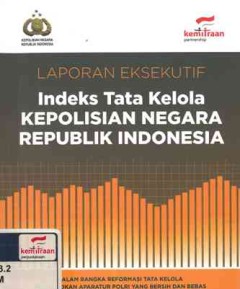
Laporan eksekutif Indeks Tata Kelola Kepolisian Negara Republik Indonesia tah…
- Edition
- -
- ISBN/ISSN
- 978-602-1616-50-5
- Collation
- viii, 56p.; 25 cm
- Series Title
- Seri: Indeks Tata Kelola Kepolisian
- Call Number
- 363.2 TIM l
- Edition
- -
- ISBN/ISSN
- 978-602-1616-50-5
- Collation
- viii, 56p.; 25 cm
- Series Title
- Seri: Indeks Tata Kelola Kepolisian
- Call Number
- 363.2 TIM l
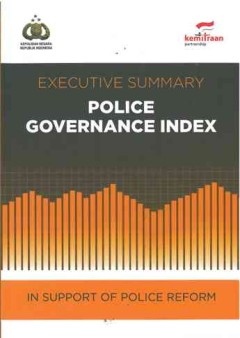
Executive Summary Police Governance Index 2015
- Edition
- -
- ISBN/ISSN
- 978-602-1616-50-5
- Collation
- viii, 70p.; 25 cm
- Series Title
- Seri: Indeks Tata Kelola Kepolisian
- Call Number
- 363.2 LOE e
- Edition
- -
- ISBN/ISSN
- 978-602-1616-50-5
- Collation
- viii, 70p.; 25 cm
- Series Title
- Seri: Indeks Tata Kelola Kepolisian
- Call Number
- 363.2 LOE e

Gubernatorial use of executive orders: unilateral action and policy adoption
I examine gubernatorial use of executive orders, and assess how executive action influences statute adoption. I argue that strong governors use executive orders to pursue policy objectives when they perceive legislation as unlikely to pass. Multilevel Event History Analysis of executive orders and the adoption of statutes that protect the lesbian, gay, bisexual and transgender (LGBT) community …
- Edition
- Volume 37, Issue 3, September 2017, p. 315-339
- ISBN/ISSN
- 0141814X
- Collation
- -
- Series Title
- Journal of Public Policy
- Call Number
- -

Multiple streams in member state implementation: politics, problem constructi…
This article applies the multiple streams approach to a multilevel implementation setting to analyse why Swiss member states enabled the labour market integration of asylum seekers between 2000 and 2003. It argues for integrating the social construction of target groups into the problem stream, and complementing the policy stream with inherited policy paths. A fuzzy-set qualitative comparative …
- Edition
- Volume 37, Issue 3, September 2017, p. 287-314
- ISBN/ISSN
- 0141814X
- Collation
- -
- Series Title
- -
- Call Number
- -

Regulatory capture and quality
Drawing on accounts of regulatory capture in which an industry�s influence activities pull regulation in its direction, apart from incentives or information, this article develops a formal model of capture as a shift in a policy-making agent�s preferences, due to costly actions by the industry. One type of action is rentseeking that produces only capture, whereas the other type also improves re…
- Edition
- Volume 37, Issue 3, September 2017, p. 261-286
- ISBN/ISSN
- 0141814X
- Collation
- -
- Series Title
- -
- Call Number
- -

Participation, process and policy: the informational value of politicised jud…
We develop a model of �notice and comment� rulemaking, focussing on strategic issues facing agencies and interest groups in light of judicial review in this process. Specifically, we analyse the incentives for agencies and groups to produce and reveal information during rulemaking. We show that judicial review can produce informed policymaking, but that participatory rulemaking can bias agency …
- Edition
- Volume 37, Issue 3, September 2017, p. 233-260
- ISBN/ISSN
- 0141814X
- Collation
- -
- Series Title
- Journal of Public Policy
- Call Number
- -

Explaining varying lobbying styles across the Atlantic: an empirical test of …
There is consensus in the literature that policymaking in the United States (US) and Europe generates different lobbying styles. Two explanations for these differences have been developed so far. The first posits that distinct lobbying styles reflect different political cultures. The second attributes distinct lobbying styles to variation in the institutional context in which lobbyists operate.…
- Edition
- Volume 37, Issue 4, December 2017, p. 459-486
- ISBN/ISSN
- 0141814X
- Collation
- -
- Series Title
- Journal of Public Policy
- Call Number
- -

Adoption, reinvention and amendment of renewable portfolio standards in the A…
It has long been recognised that interstate diffusion of policy innovations is comprised of distinct decisions including adoption, reinvention and amendment. Interstate influences are an important driver of these diffusion processes, but studies to date have not investigated the degree to which external influences vary across these decisions. We theorise that geographical peers will have the la…
- Edition
- Volume 37, Issue 4, December 2017, p. 431-458
- ISBN/ISSN
- 0141814X
- Collation
- -
- Series Title
- Journal of Public Policy
- Call Number
- -

Contingent technocracy: bureaucratic independence in developing countries
This study investigates the effects of formal bureaucratic independence under varying democratic conditions. Conventional accounts predict that greater formal independence of technocratic agencies facilitates policy implementation, but those claims rest on observations of industrialised, high-income countries that are also established democracies. On the basis of research in developing countrie…
- Edition
- Volume 37, Issue 4, December 2017, p. 401-429
- ISBN/ISSN
- 0141814X
- Collation
- -
- Series Title
- Journal of Public POlicy
- Call Number
- -

State capture from below? The contradictory effects of decentralisation on pu…
This study analyses the contradictory effects of decentralisation on public spending. We distinguish three dimensions of decentralisation and analyse their joint and separate effects on public spending in the Swiss cantons over 20 years. We find that overall decentralisation has a strong, significant and negative effect on the size of the public sector, thus confirming the Leviathan hypothesis.…
- Edition
- Volume 37, Issue 4, December 2017, p. 363-400
- ISBN/ISSN
- 0141814X
- Collation
- -
- Series Title
- -
- Call Number
- -

No vacancy: holdover capacity and the continued staffing of major commissions
Although the United States (US) federal bureaucracy is plagued by high vacancy rates generally, quorum requirements and small board sizes make vacancies particularly problematic within major independent regulatory commissions. Not all vacancies, however, are created equal. By statute, some major boards allow members to continue serving beyond their original term in the absence of a confirmed re…
- Edition
- Volume 37, Issue 4, December 2017, p. 341-361
- ISBN/ISSN
- 0141814X
- Collation
- -
- Series Title
- Journal of Public Policy
- Call Number
- -
 Computer Science, Information & General Works
Computer Science, Information & General Works  Philosophy & Psychology
Philosophy & Psychology  Religion
Religion  Social Sciences
Social Sciences  Language
Language  Pure Science
Pure Science  Applied Sciences
Applied Sciences  Art & Recreation
Art & Recreation  Literature
Literature  History & Geography
History & Geography